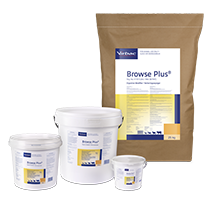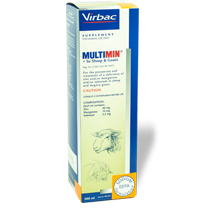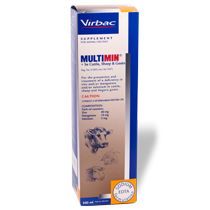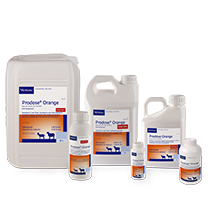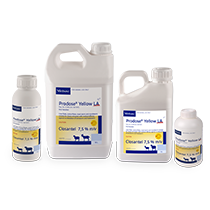Preparing ewes for the Autumn lambing season
Just as ewes must be prepared for the mating season to ensure maximum conception, ewes must also be prepared for the lambing season to ensure that lambs get the best possible start in life!
The following factors should be kept in mind:
Nutrition
Conditioning of ewes for autumn lambing season in summer rainfall areas is usually not such a major challenge, but still critical:
- Most of the fetus growth (80%) occurs in the last part ( 2 months) of pregnancy. If ewes are not in good condition (3.5 to 4) at this time, the development of the unborn lamb, especially in the case of twins, may be adversely affected. Birth weight is critical in lamb survival (mass of 3.5kg to 5.5kg is ideal). NB. Overweight ewes' lambs can develop too large (> 5.5kg) and can lead to difficult births.
- Nutrition at this time also affects udder development, beef quality and milk production - which plays a big role in lamb survival and pre-wean growth. The supplementation of flow-through proteins is crucial at this time.
- Nutrition in late pregnancy even affect mothering ability, which is important for lamb survival.
- The condition of the ewe at lambing even affects the conception of the next mating season. If ewes do not lamb in good condition, conception can be reduced during the next mating season - even if the ewes are then in good condition!
- If ewes are lambing in lambing pens, make sure that the ewes are gradually adjusted to the ration to be provided in the lambing pens, to prevent nutritional-related digestive disorders. Nothing can adversely affect a ewe's milk production as quickly as an upset stomach!
Trace minerals and vitamins
The ewes' need for trace minerals and vitamins increases drastically in late pregnancy. Although most commercial licks do contain these elements, the amount consumed can often not meet the need and a so-called trace mineral gap can arise. The trace mineral status of the unborn lamb is totally dependent on supply from the ewe. Thus, ewes can benefit from an “OP TOP” trace mineral and vitamin supplement in late pregnancy. See a follow-up article for more details on this topic.
Parasite control
In the run-up to the autumn lambing season, internal parasites can be a major challenge (especially in the summer rainfall areas). Reduced appetite, diarrhea, irritation (nasal worm), anemia etc. are some of the adverse effects that internal parasites can have. This can lead to many other negative consequences for the ewe and unborn lambs. A follow-up article will address this aspect in more detail.
Vaccinations
Good immunity is one of the most important pillars of good health care. The immune system of late pregnant ewes is under severe pressure and needs to be supported. For the ewe itself, especially with an increase in good quality nutrition in late pregnancy, it is essential that immunity against puply kidney (Clostridium spp) is optimized by vaccination.
The newborn lamb is born without immunity and is totally dependent on good quality colostrum high in antibodies, to get its immune system into gear. By vaccinating late pregnancy ewes (clostridium-related diseases and pasteurella), the quality of colostrum can be increased. This will protect the lamb in the first few weeks as best as possible. Please contact your local veterinarian for the most suitable vaccines for your area. NB. General nutrition and trace minerals can affect the effectiveness of vaccines.
General
- If numbers warrant, divide ewes into groups by pregnancy status (singles vs. twins) and adjust feeding accordingly.
- Preparation of lamb pens. If lambing pens are used, make sure that they are properly disinfected and that bedding, water and feeding supplies are in place.
- Ensure that all necessary equipment and tools needed during the lambing process are in stock and available (detergents, antibiotics, etc.)
- Apply biosecurity! Avoid unnecessary entry into the area where lambing will take place. If so, make sure effective remediation occurs to prevent contamination with bacteria and protozoa (ie. cryptosporidium).
- Avoid unnecessary handling of ewes and handle as calmly as possible.
As areas vary, it is always wise to consult your local veterinarian, nutritionist and Virbac Technical Sales Advisor to ensure the use of the correct products and nutrition.

